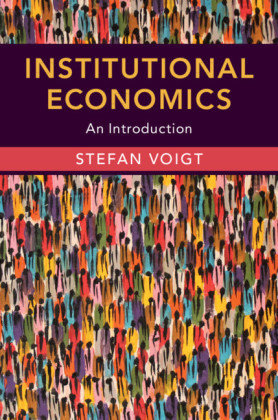Why is it that some countries become rich while others remain poor? Do markets require regulation to function efficiently? If markets offer an efficient way of exchanging goods, why do individuals even create firms? How are economic transactions organized in the absence of a state that could enforce contracts and guarantee property rights? Institutional economics has allowed social scientists to answer many fundamental questions about the organization and functioning of societies. This introduction to institutional economics is concise, yet easy to understand. It not only caters to students of economics but to anybody interested in this topical research area and its specific subfields. Both formal and informal institutions (such as customs, habits, and traditions) are discussed with respect to their causes and consequences, highlighting the important part they play for economic growth and development.



